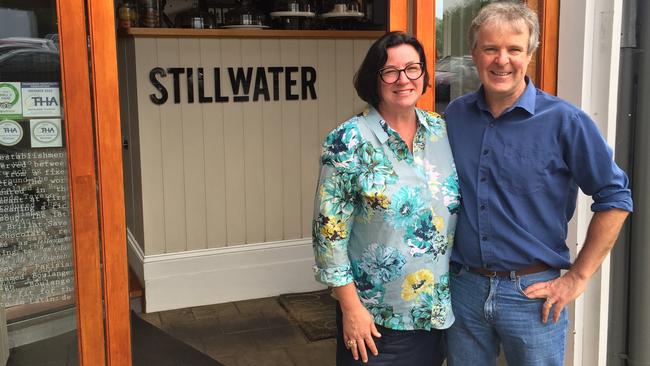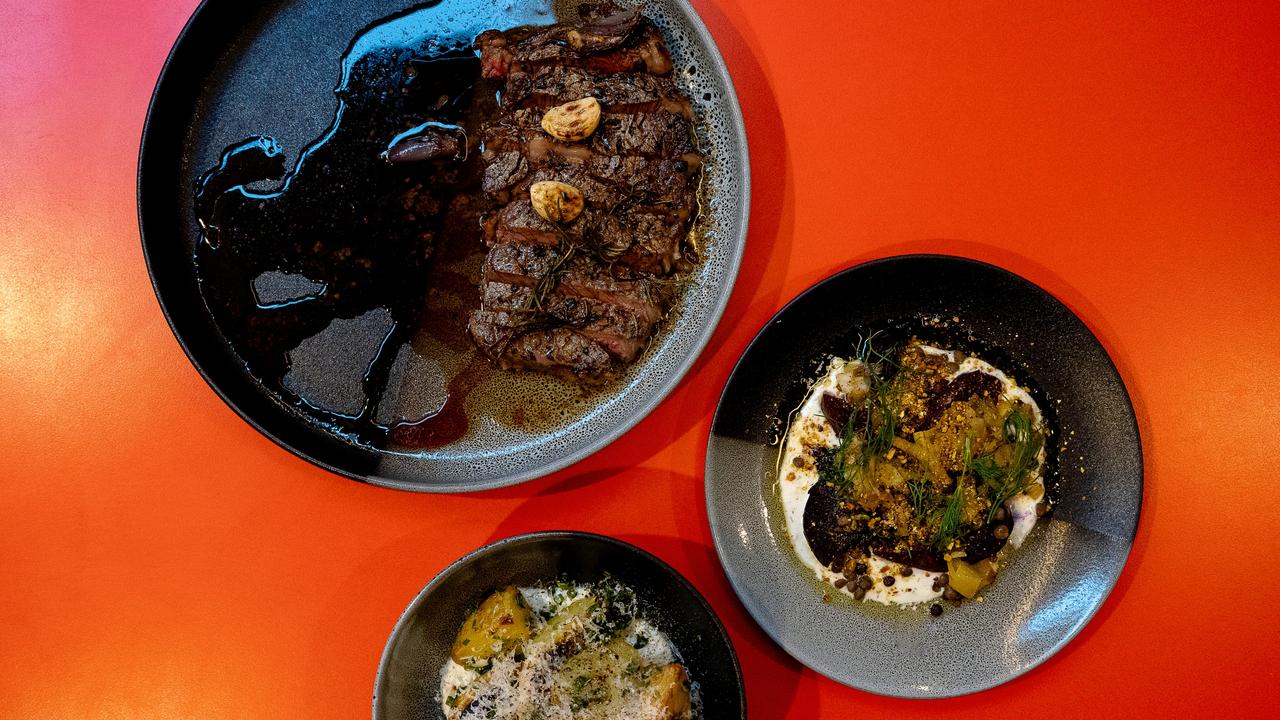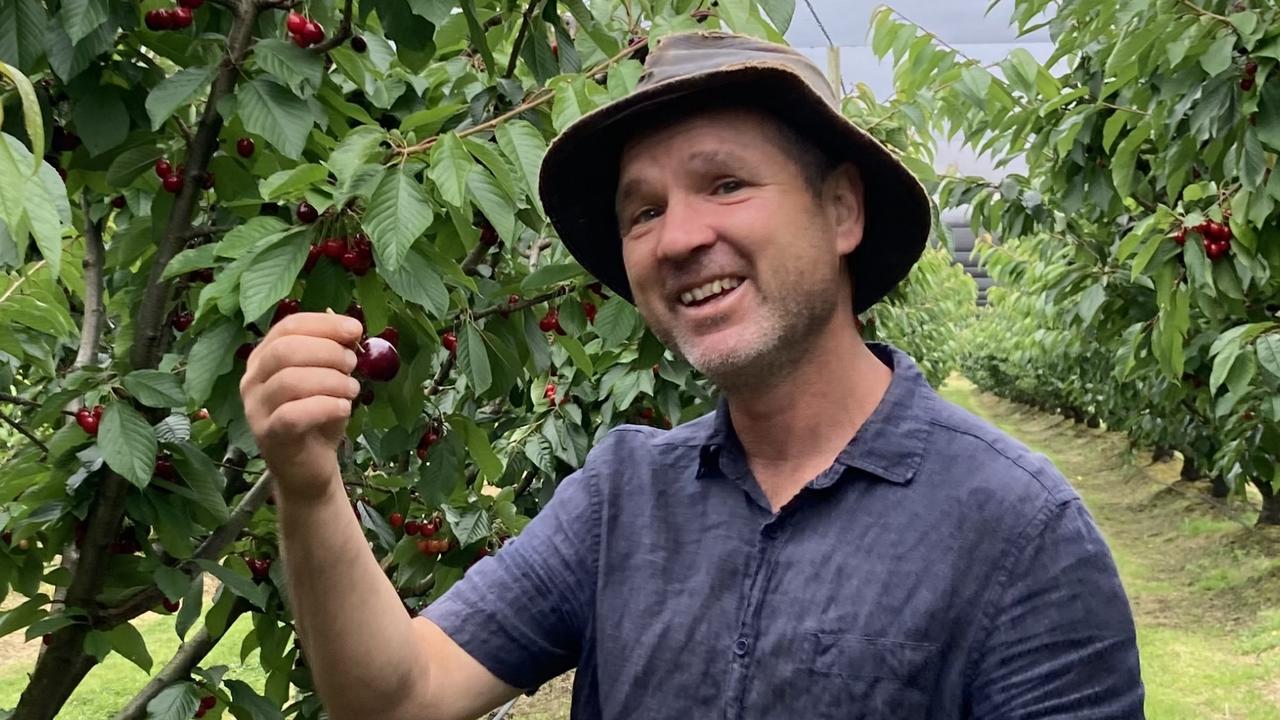Crowd-funding campaign for Fermentation Tasmania
RATHER than rely on self-preservation, Tasmania looks to spread its expertise on the ancient art of fermentation.

Food and Wine
Don't miss out on the headlines from Food and Wine. Followed categories will be added to My News.
TASMANIA is set to become the go-to place for knowledge of fermentation, one of the oldest methods of transforming and extending the life of food.
It is employed to produce beer, bread, cheese, yoghurt, cider, pickles, smallgoods, miso, whisky, gin, kombucha, vinegar and wine.
But while it’s as old as the ages, fermentation is also cutting-edge trendy for chefs and diners, nutritionists and researchers who are discovering the power of friendly bugs and bacteria to effect health, including mental health.
A centre of excellence for fermentation is the goal of Fermentation Tasmania, a not-for-profit company, the board members of which variously have expertise in science, hospitality, food innovation, winemaking, cidermaking, agribusiness, accounting and skills training.
The idea began a year ago when consultants for the Centre of Food Innovation recommended a centre of excellence in fermentation for Launceston.
The idea originated with Kim Seagram, co-founder of Stillwater and Black Cow restaurants and president of the Harvest Market committee, all in Launceston, and Tom Lewis, scientist and director of RDS Partners, both involved with the Centre for Food Innovation.
“My doctorate is in microbiology and fermenting is something that really interests me,” Lewis says. “I like bugs.”
Why aren’t we making the best, healthiest pickles the in the world and selling them to our Asian neighbours?
While there are no specifics about how the centre will work, Fermentation Tasmania is set to have four arms.
It will facilitate development of new products, carry out research on fermentation, work with education establishments to organise skills and training courses, and it will facilitate tourism, ranging from a one-day cheesemaking course to paying to work at winery.
There are some 450 dairy farms in Tasmania but only about 12 cheesemakers.
“Whereas, we have about 300 winemakers and produce some absolutely magic wines,” Seagram says. “We should be doing the same with cheese, also butter, cream and, the biggest growing sector of the dairy case right now, which is yoghurt. At the moment most of our dairy produce is sold as a commodity.”
Fruit and vegetables not perfect enough for supermarkets are another resource.
“We are a gateway to Asia, people who eat pickles with every meal — look at kimchi in Korea,” Lewis says. “Why aren’t we making the best, healthiest pickles the in the world and selling them to our Asian neighbours?
“We must extract the maximum value from our produce before it leaves our shores.”
Lewis refers to the research function as the “sandpit”, a place in which to play with ideas.
“There is demand for those who are producing things that are value-added by our friendly yeast and bacteria to be able to get together and be able to learn from each other,” he says.
There is no formal brewing training in Australia and no cider training in the world.
“We want to help all the people who are now finding it really difficult to have to train people on the job,” Lewis says.
The CSIRO has expressed interest in fermentation as a way of adding value to horticultural produce, international company Lallemand, which produces yeasts, is keen to be involved.
UTAS and Tafe are interested in the skills training and the State Government says it will underpin funding if Fermentation Tasmania can prove interest and “skin in the game”.
But government funding can disappear, so Seagram wants Fermentation Tasmania to become industry driven and funded.
“We want to create something solid that can create legacy businesses going into the future,” she says.
Before the centre starts, studies will be carried out around the world, including visiting Oregon State University, in the US, which runs a micro brewery and a cheesery, and to visit Asia to assess the market for pickles.
Lewis is putting the $10,000 AgriFood Skills International Fellowship award he won last year towards the travel, but more is needed.
The group has started a crowd-funding appeal at fermentasmania.com.


